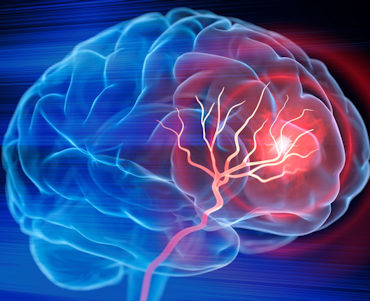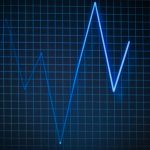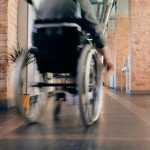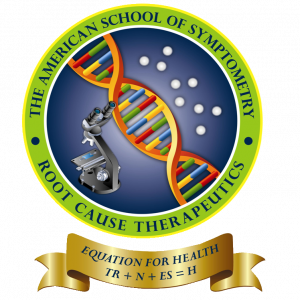
Dr. Maxwell Nartey
Professor of Symptometric Science
American School of Symptometry, NFP
The facts
The facts
Dr. Wilhelm H. Schuessler (1821- 1898), discoverer and formulator of tissue salts, died at age 77 from stroke complications. President Richard Nixon died from stroke complications. Presidents John Adams, John Quincy Adams, John Tyler, Millard Fillmore, Andrew Johnson, and Woodrow Wilson also died from stroke complications.
According to the statistics of the American Heart Association, 160,254 people died from stroke complications in 2020.
According to the CDC’s “FastStats” data, in 2023, 165,393 people died from cerebrovascular disease or stroke, which includes cerebral hemorrhage. Why do people bleed in their brains? Ask this question, and all you will have is speculation.
Symptometry will not stand idle or bury its head in the sand to allow this trend to continue. I must step forward to correct what needs to be corrected so that an anomaly that physicians discuss clumsily is put into its proper perspective.
In December 2022, I wrote an article about stroke, discussing the role that cooking with bad oil and the toxin of streptococcus play in increasing a person’s susceptibility to stroke, ischemia, embolism, and thrombosis. This time, I will start with our colons, a different perspective.
Why our colons?
One strain of colon bacteria produces vitamin K, which unravels blood clots. Decimating these colon bacteria with antibiotics would make it impossible for a person to produce vitamin K naturally for at least 6 years, and the vitamin K sold as supplements in health food stores is downright bogus. Why? It does not unravel a blood clot in a Petri dish in the lab. Aspirin TM does, but there is a catch.
Aspirin’s salicylate salt in the human body unravels the desmosomes to cause ulcers. A desmosome is a filament our cells produce to attach themselves to other cells.
Tiny ulcers cause a burning sensation, which is now called UTI if it occurs in the urethra, or acid reflux if it occurs in the GI tract (stomach, esophagus, or throat).
The salicylate salt may unravel the tight junctions of the capillaries to cause cerebral hemorrhaging, kidney hemorrhaging, retinal hemorrhaging, gum bleeding, nosebleeds, bleeding from the ear, etc. This is the source of cerebral hemorrhaging that people have never been told about.
Aspirin has short-term advantages, but taking it routinely for months may not be in our cells’ best interest, and many physicians know it.
Foods that cause stroke
Figs and unripe papaya or partially ripe papaya are the worst fruits ever. Why? They have ficin. Ficin blocks the blood clot’s ability to unravel, turning it into a thrombus or an embolus.
A thrombus is a blood clot that forms in an organ and will not budge, making it obstructive.
An embolus is a blood clot that circulates. It could get stuck in the capillaries that supply oxygenated blood to the ankle joint, wrist joint, elbow joint, quadriceps, hamstring, calves, hip flexors, and gluteus.
Getting stuck in such joints and muscle fibers could paralyze the person’s right leg and arm or left leg and arm, freeze their elbow at an angle, and make their hand practically lifeless. This is how ficin causes susceptibility to stroke.
Is ficin only in figs? No, it is also in cheese. Why? Ficin is used to turn milk into curds. Curds produce cheese.
Therefore, if a person who eats cheese has an infection and is treated with antibiotics, their chances of reversing their condition will be significantly reduced.
Ischemic strokes
An embolus may cut off circulation, depriving tissues of oxygen, nutrients, and resources and causing ischemia (bloodlessness). Ischemic strokes are common in people who suffer from embolism.
Is ficin only in cheese?
No. It is in many meat tenderizers, unripe papaya, medical sutures to stitch wounds, and blood typing devices. Such devices place blood donors or recipients in their respective groups.
Therefore, many people have ficin in their bodies but just don’t know it, and when they have a stroke, they are surprised. Why should they be surprised? People should know about the sources of ficin so that they can find a way to neutralize it.
Medical speculators
Physicians tend to scare people who have hypertension by warning them against skipping their medication. Such people are made to believe that if they don’t take their medication, they could have a stroke. This is speculation at its best.
Hypertension has never caused a stroke and never will. Loss of osmotic pressure or the inability to produce ANP (atrial natriuretic peptide) and renin predisposes a person to elevated pressure due to arterial tension. This is the underlying cause of hypertension. What about stroke?
Tiny blood clots that get stuck in the joints and muscle fibers because they could not unravel cause susceptibility to stroke. Two different anomalies, two different causes. Therefore, hypertension does not cause a stroke. There are 13 year-old girls or boys who had a stroke. They did not have hypertension.
It is a person who has ficin in their system who will increase their susceptibility to a stroke. People eat cheese for protein. Fair enough. What about ficin? Are they aware that ficin is in cheese, sutures, and meat tenderizers? No, they are not.
I have shared important scientific information about cheese that nutritionists and dietitians know very little about. Why should the President of the United States of America suffer a stroke?
Symptometry is now sharing the downside of cheese so that after eating it, people are advised to take the particulates that break the chemical bonds of ficin, making it impossible for it to cause embolism, thrombosis, and ischemia.
Physicians prescribe Aspirin TM, Warfarin TM aka, Coumadin TM, etc. to treat or prevent blood clots. These drugs have unpleasant side effects. Additionally, they have never reversed a stroke.
The world now has Symptometry. Take your pick. Is life not about making choices? Yes, it is.
Exercise
Physical therapy and exercise have never reversed a stroke and never will.
Symptometry’s assistance
Symptometry can reverse stroke in a person who meets its prerequisites. One prerequisite is that conditioning should not have set in. For example, a person who has had a stroke for 2 years or more and will not follow the health rules will not qualify for Symptometry’s assistance.
A person can stop eating cheese, but stopping eating cheese does not and cannot reverse stroke. Only specific particulates that break the bonds of ficin and reverse cell lockdown will reverse the stroke of the person who prequalifies. The key words are “cell lockdown”.
© Copyright 2025, The American School of Symptometry, NFP. No part of this publication may be reproduced or transmitted in any form or by any means, electronic or mechanical, including photocopying, recording, or by any information storage and retrieval system without the written permission of The American School of Symptometry, NFP. Library of Congress copyright number Txu 1-621-370, Washington D.C.


 Previous Post
Previous Post Next Post
Next Post